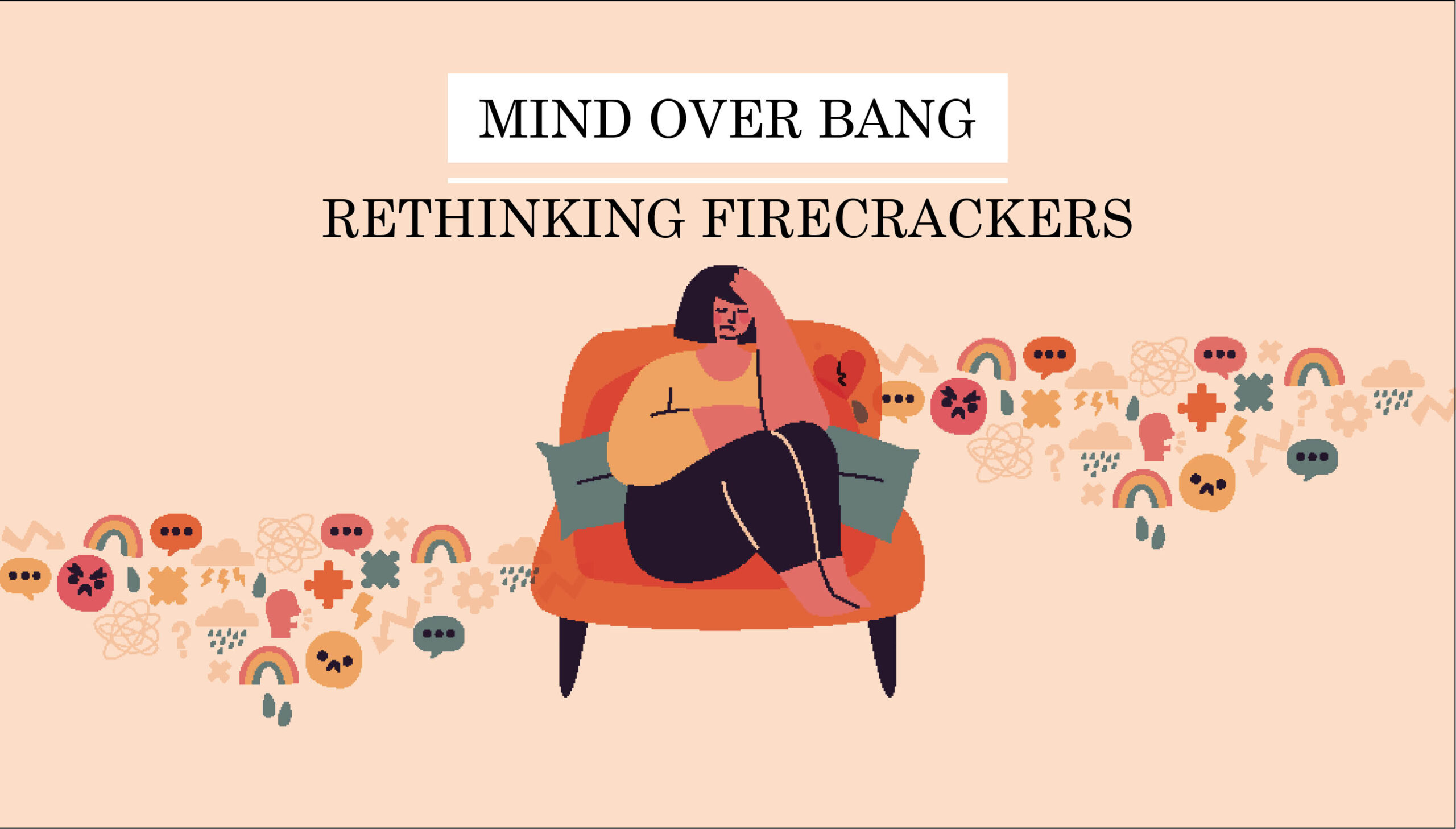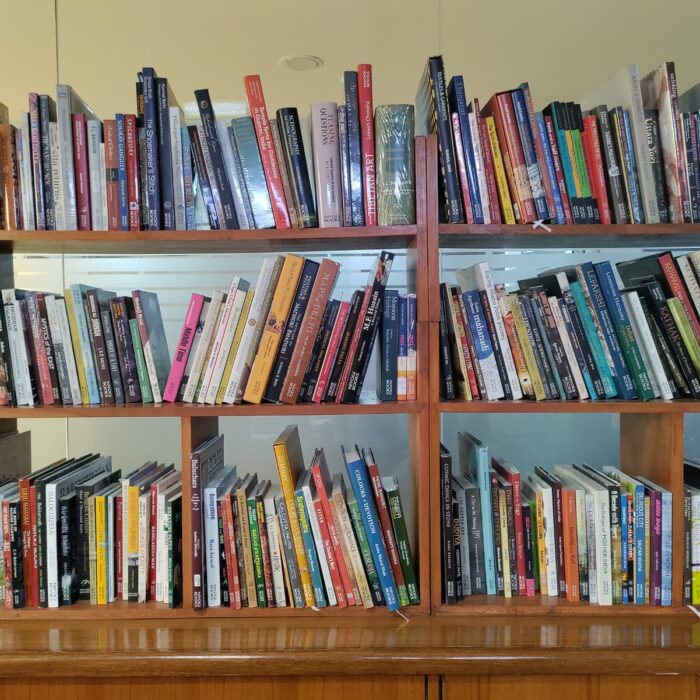
Mind Over Bang: Rethinking Firecrackers for Healthier Celebrations
Festivities are upon us and so are the daily sounds of crackers bursting late into the night. For some it is a celebration, for some it is pain. Dussehra and Diwali are among the most celebrated festivals in India and now in other parts of the world where there is a large number of Indian diaspora. But fireworks are not limited to just festivals, they are fired off for a variety of reasons – weddings, birthdays, anniversaries, especially winning an election. For many, these festivals symbolize the triumph of good over evil and are synonymous with joy, family gatherings, and community celebrations. Yet, behind the dazzling displays of firecrackers lies a darker, often overlooked reality—their significant impact on mental health. While firecrackers are traditionally believed to ward off evil spirits and bring happiness, their use today has evolved into a widespread practice of expressing joy. However, the consequences of relentless cracker-bursting, especially in densely populated urban areas, need to be acknowledged. It’s time we rethink this festive indulgence, considering not only its environmental impact but also its toll on mental well-being.
For individuals living with anxiety disorders or Post-Traumatic Stress Disorder (PTSD), the sound of firecrackers can be debilitating. Loud, unexpected explosions can trigger panic attacks, causing elevated heart rates, shortness of breath, and an overwhelming sense of dread. The unpredictability of firecracker noise exacerbates the situation, leaving sufferers in a constant state of hyper-awareness. What’s meant to be a time of joy becomes a period of immense mental strain for some. This issue is not confined to India. In the United States, the Fourth of July is celebrated with grand fireworks displays, but for many veterans suffering from PTSD, these explosions are a painful reminder of combat. An initiative called Green Light a Vet encourages neighbourhoods to reduce the use of fireworks near veterans’ homes, showing a growing awareness of the issue.
Firecracker use doesn’t just lead to anxiety—it disrupts one of the most crucial aspects of well-being: sleep. In crowded metropolitan cities like Delhi, Mumbai, Kolkata, and Bengaluru, the sound of firecrackers continues late into the night, making it nearly impossible at times. Sleep deprivation is linked to irritability, mood swings, and difficulty concentrating. A study conducted in Mumbai during Diwali revealed a sharp spike in sleep-related complaints, particularly in residential areas where firecracker use was rampant. The lack of sleep further exacerbates mental health problems, leading to increased stress levels and a weakened immune system. Sleep is critical for mental resilience, and during festival seasons, its deprivation has ripple effects on people’s overall well-being.
Children, the elderly, and individuals with sensory processing disorders are especially vulnerable to the stress caused by firecrackers. For children, who might not fully understand the source of the loud noises, constant firecracker bursts can lead to confusion and fear. Children with conditions like autism, who are highly sensitive to noise, experience sensory overload during these festivals. A study by the Indian Journal of Paediatrics found that children with autism displayed heightened anxiety and behavioural issues during Diwali due to the auditory and visual overstimulation caused by fireworks. To mitigate the negative effects of fireworks, some communities have started organizing sensory-friendly alternatives, like silent fireworks or light shows, offering a more inclusive form of celebration.
Firecrackers not only create new stressors but can also aggravate pre-existing mental health conditions like depression and anxiety. For someone dealing with depression, the overstimulation from continuous noise, lights, and smoke can lead to feelings of claustrophobia or helplessness. What should be a time of celebration and relaxation can turn into a psychological battleground for those already struggling with mental health. With no escape from the noise, it adds to the loneliness that some feel, making the festive season harder to cope with.
The psychological effects of firecrackers should be at the forefront of everyone’s mind be it the public or the government. While some progress has been made with eco-friendly initiatives like green crackers and laser shows in places like Delhi and Kolkata, a tremendous amount still needs to be done to spread awareness about the mental health implications. In Bengaluru, several housing societies have implemented silent Diwali celebrations, opting for vibrant light displays and traditional rituals while banning firecrackers altogether. Similarly, the Mumbai High Court has imposed time limits on firecracker use, particularly at night, to help curb noise pollution. Though they are steps in the right direction, the real change will come when society at large recognizes that mental health is as important as environmental health. As a global trend toward mental health awareness grows and moves on from being a taboo subject, it’s time for festivals to evolve too
Festivals like Diwali and Dussehra are a time of joy and togetherness, but we must not forget that our celebrations can have unintended consequences on others. By adopting more inclusive practices—whether through quieter fireworks, designated times for firecracker use, or more sensory-friendly alternatives—we can ensure that everyone, including those with mental health challenges, can enjoy these festivals without distress. After all, the true spirit of these festivals lies in harmony and goodwill, values that should extend to all members of our communities.
Let’s strive for celebrations that spark joy in every heart, not anxiety.


